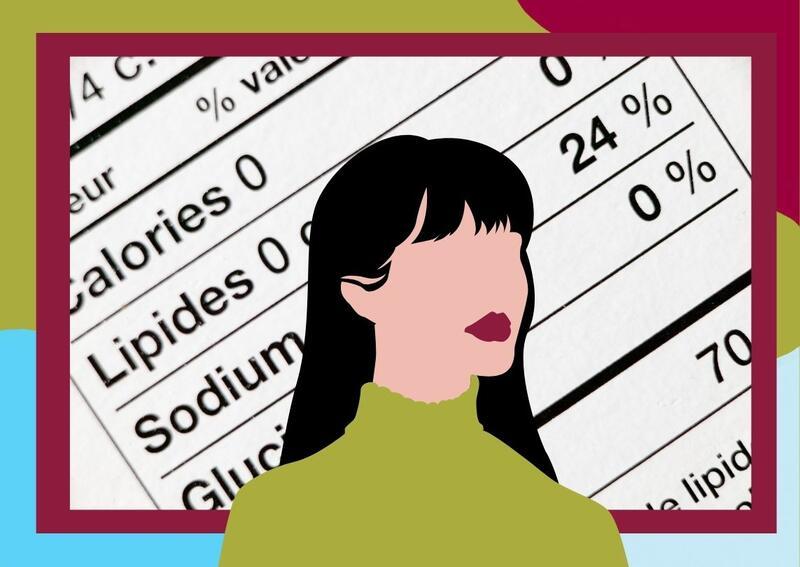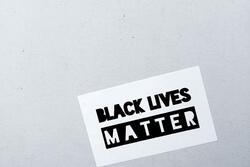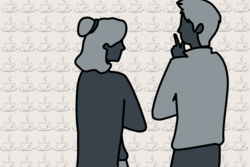As a Jewish Feminist, Learning How to Engage with My "First Ingredient": Whiteness
On a product label, “the ingredients are listed in order of predominance, with the ingredients used in the greatest amount first, followed in descending order by those in smaller amounts.” If I were a can, and you were to pick me up off of a grocery store shelf and scan my backside for a list of ingredients, “white” would be first. There are many other characteristics on said list, but in reality, who reads the whole thing? I know that the lack of acknowledgment towards my various other identities (at least at first glance) doesn’t mean they aren’t there. I’m Jewish, and for that, I’ll encounter prejudice. I’m gay, and for that, I’ll encounter prejudice. Above all else, though, I’m white, and for that, I'll never encounter the prejudice that a person of color does.
Some white people are uncomfortable with the fact that they hold an inherent advantage over people of color. They’re quick to make “jokes” about racist elected officials or estranged relatives to let you know that they know racism is wrong. These comments aren’t evil or malicious, but they’re not productive. If briefly thinking about racism and the part you play is too unbearable, know that “people of color must always consider their racial identity, whatever the situation, due to the systemic and interpersonal racism that still exists."
I don’t feel guilty for being white. I do feel guilty when I don’t donate to mutual aid or address someone’s prejudiced comment in class. I feel ashamed when I don’t use my accessible resources to educate myself and spread awareness. I feel embarrassed that at one point in my life, before I knew better, I absolved my personal responsibility to be actively anti-racist by equating guilt to allyship. Prior to my current state of awareness, I believed that being “not racist” was enough. However, I was sorely mistaken. As I continue to educate myself, I replace the guilt that once was with a sense of liability.
First and foremost, I understand that my circumstances are not universal for all white people. I live in a two-parent household, with stable sources of income, and get my education from one of the best public school districts in America. I also understand that white people with circumstances less fortunate than my own will also always have some privilege because of their race. I’ve reaped the many benefits of my white privilege to understand the ways in which it harms people of color—not just in my community, but worldwide. I’ve learned that embracing my privilege is a compulsory step to using it as an aid. Without a doubt, it’s the most important active (keyword, meaning not passive) advantage to my whiteness. The passive benefits I possess also play a role in how much I can learn and understand. I’ve never had to worry about experiencing mistreatment, whether it be interpersonal or systematic, because of my race. This saves me massive amounts of mental energy, which I can utilize to become a better ally.
For most of my life, I’ve been shielded from the realities of racism. Racism was never addressed outside of lessons surrounding MLK Day or Black History Month, and even then, we received censored, ultra-positive versions of history and current events. If it weren’t for the media outlets of today, I’d likely be unaware of issues happening just beyond the tip of my nose.
We as white people have to understand that racism isn’t limited to segregation, voter suppression, white supremacy groups, or violence against POC. Something as seemingly small as not trying to correctly pronounce a person of color’s name because it’s “too difficult” contributes to a larger issue; this is a microaggression. Even if, to a white person, the exchange was an innocent display of their absentmindedness, that takes a backseat to the way it made someone feel, especially surrounding an issue personal to their identity. In an NPR article, TV critic Eric Deggans wrote: “To effectively defeat racism that is embedded as normal practice… you've got to be continually working towards equality, striving to undo racism in your mind, your personal environment, and the wider world.” Deggans calls upon the reader for accountability, asking that they reflect on their own behaviors. How can I expect change from another if I haven’t begun to address my own similar flaws and toxicity?
Truthfully, writing a typical conclusion to this piece feels inappropriate. There isn’t one overarching takeaway that will set you up for success when fighting racism. There isn’t a neat ending to any of these issues. There is only room to grow, more to learn, and the possibility of a world that can be better than it is now.
This piece was written as part of JWA’s Rising Voices Fellowship.






